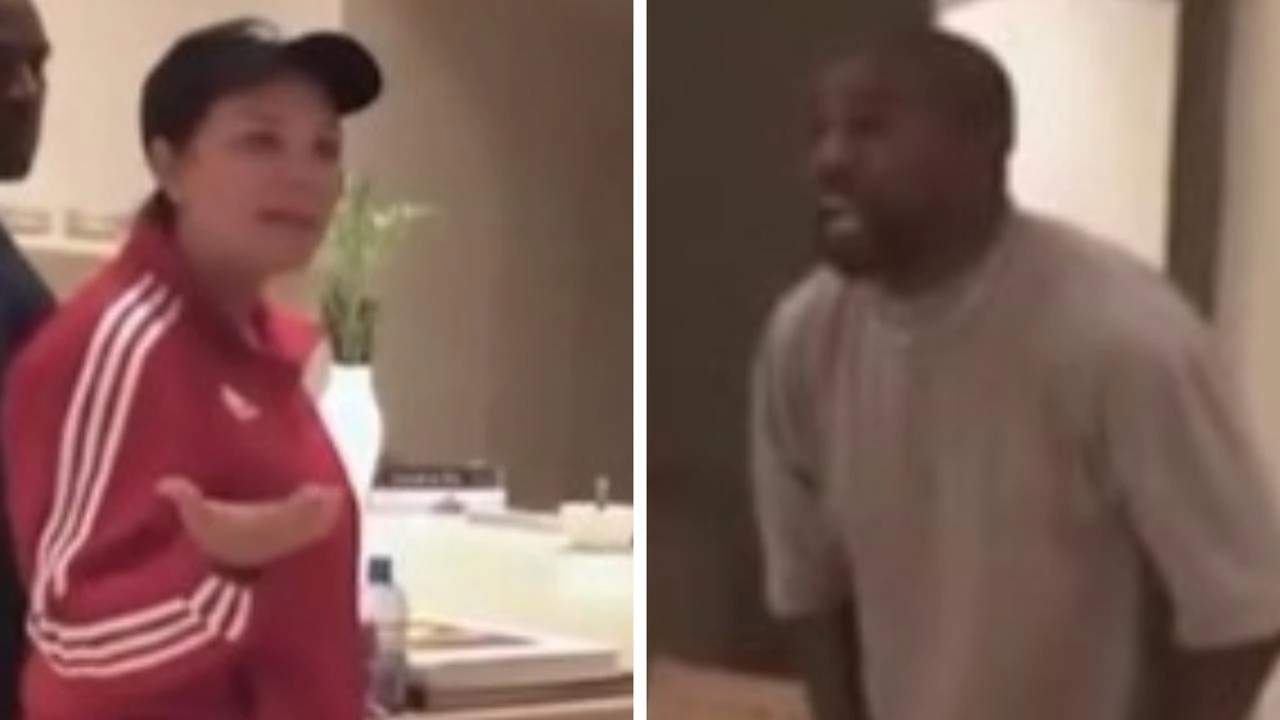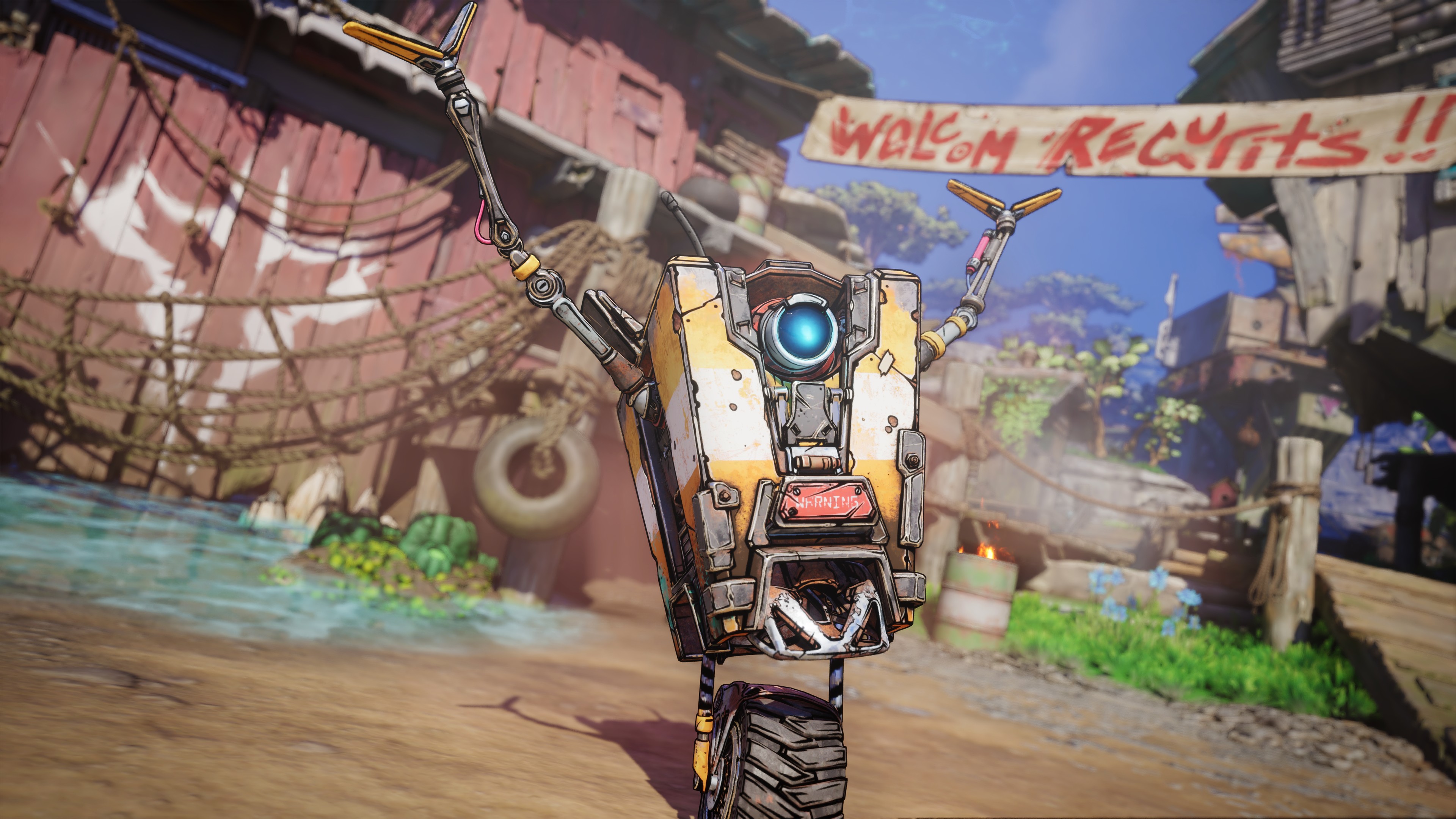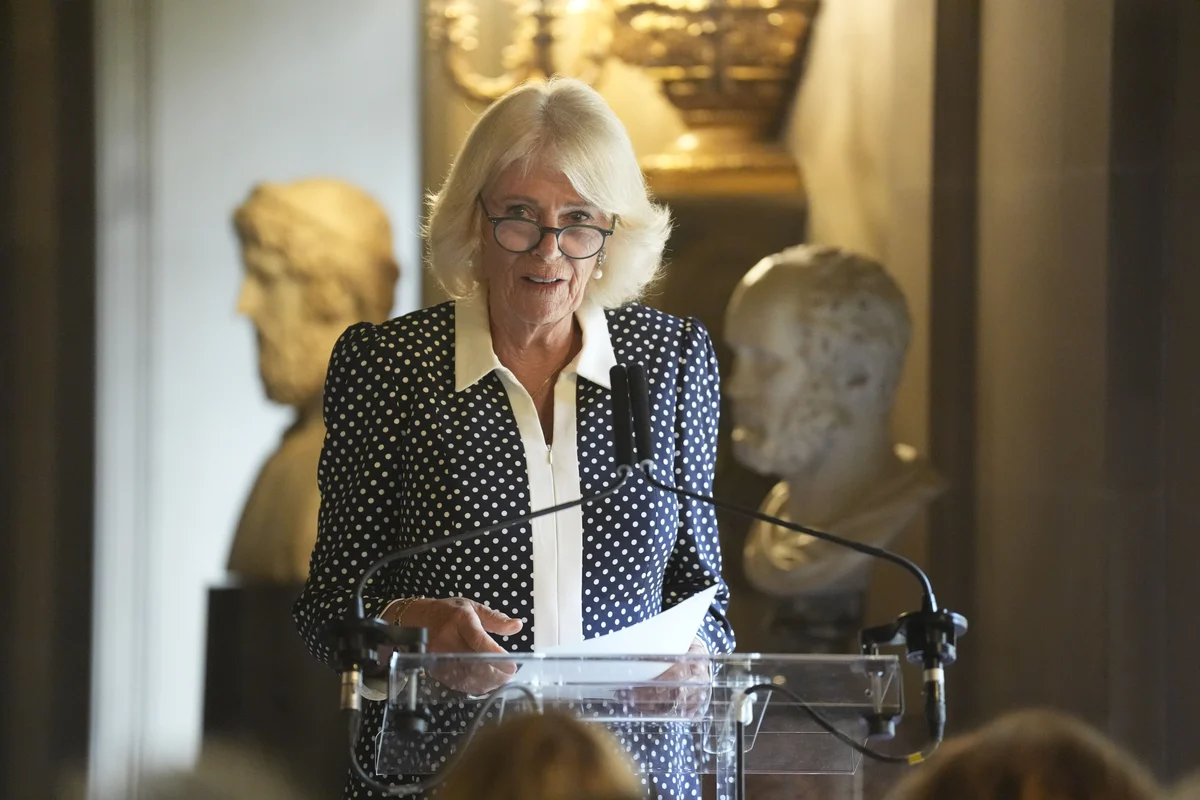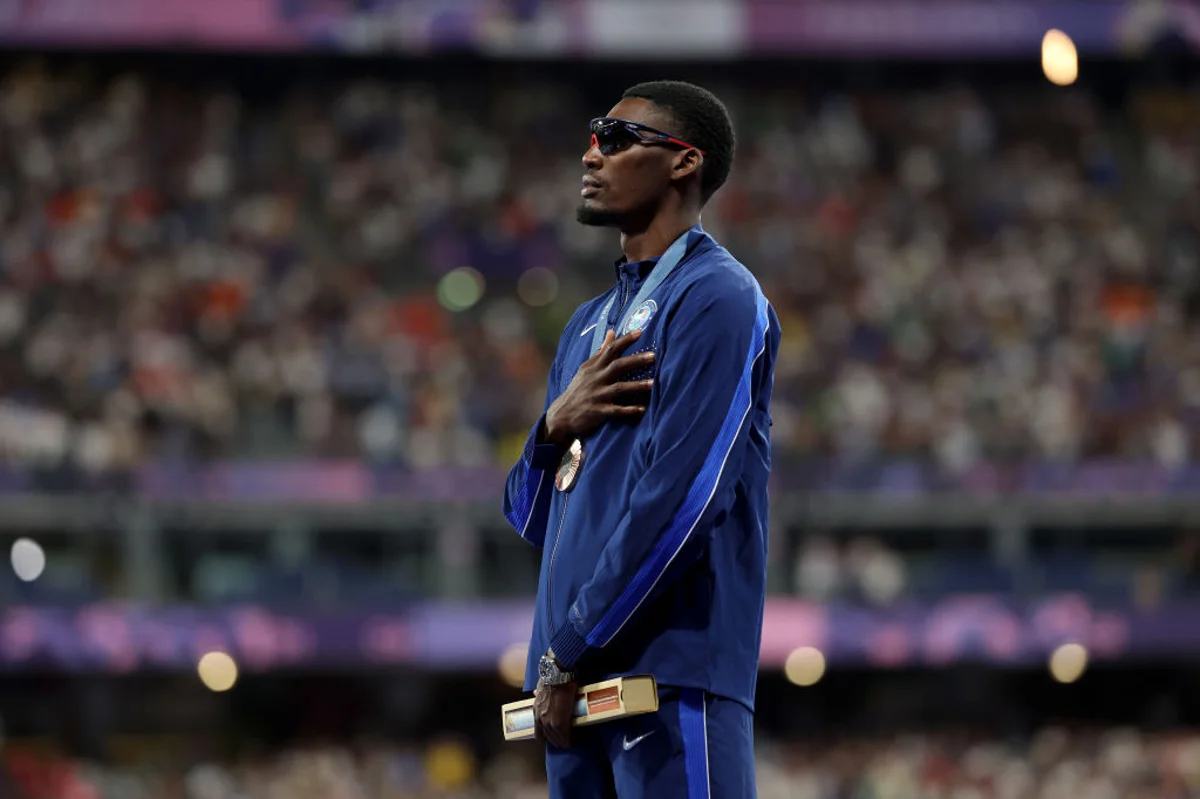By Nicole Kolster
Copyright bbc
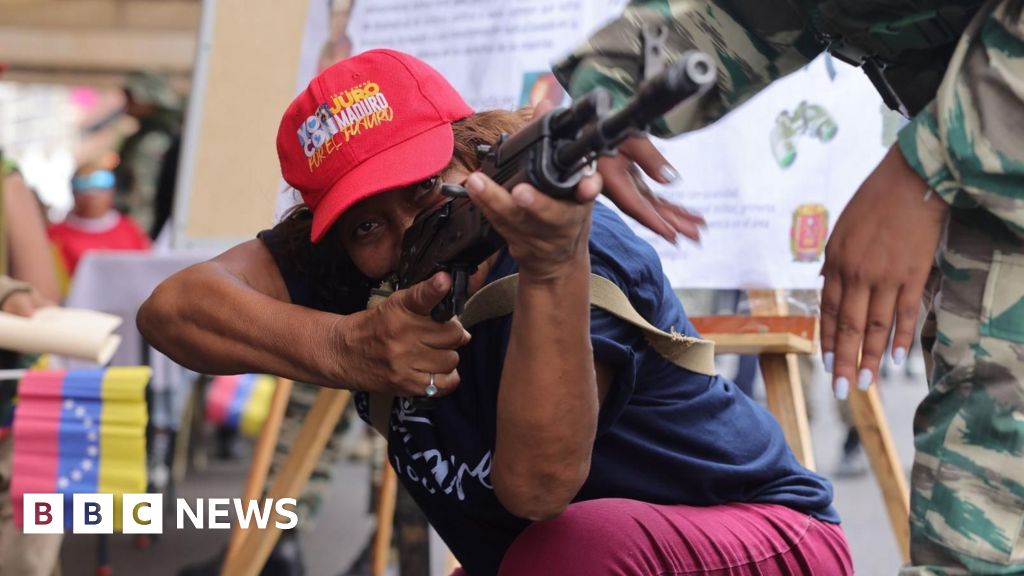
Everyone in the neighbourhood, including women and children, is listening.
Most of the volunteers taking part in the training exercise have no experience in armed fighting, but what they lack in experience they make up for in enthusiasm.
“If I have to lay down my life in battle, I’ll do it,” Francisco Ojeda, one of the locals taking part, tells BBC News Mundo.
The 69-year-old hurls himself on the sun-baked tarmac and holds a combat position as he clutches an AK-103 rifle. A soldier corrects his form.
“Even the cats will come out here to shoot, to defend our fatherland,” he says.
His eagerness is matched by that of Glady Rodriguez, a 67-year-old woman who recently joined the militia. “We are not going to allow any US government to come and invade,” she insists.
Home-maker Yarelis Jaimes, 38, is a little more hesitant. “This is the first time I grab such a weapon,” she says. “I feel a bit nervous, but I know that I can do it.”
But while the residents in Petare are learning to handle a rifle, outside of Maduro’s strongholds, life goes on as normal, with few seeming to give much thought to the possibility of an invasion.
Even just a few metres from where Francisco Ojeda was taking position in the dusty street, residents go about their daily routine unperturbed. Street sellers display their wares, while other people do the shop for the weekend without even glancing at the militia members carrying out their exercises.
Benigno Alarcón, a political analyst at the Andrés Bello Catholic University, says Maduro’s plan for the militia is not for it to engage in battle but rather to act as a “human shield”.
Prof Alarcón argues that by calling up civilians, the Maduro government wants to increase the human cost any potential US military action would incur by making the possibility of human casualties much higher.
According to Prof Alarcón, it therefore does not matter if the militia are not well trained or even if they are unarmed.
Maduro has claimed that more than 8.2 million civilians are enlisted in the militia and in the reserves, but this figure has been widely questioned.
Perales, who has been in the militia for decades, sees his role as a “defender” of his street, the neighbourhood where he lives, what he knows.
While he has taken part in previous training exercises, he has opted out of the more recent ones, due to his age and health.
But were a conflict to happen, he says he is ready: “We must defend the territory. To wear the uniform already implies a responsibility.”
